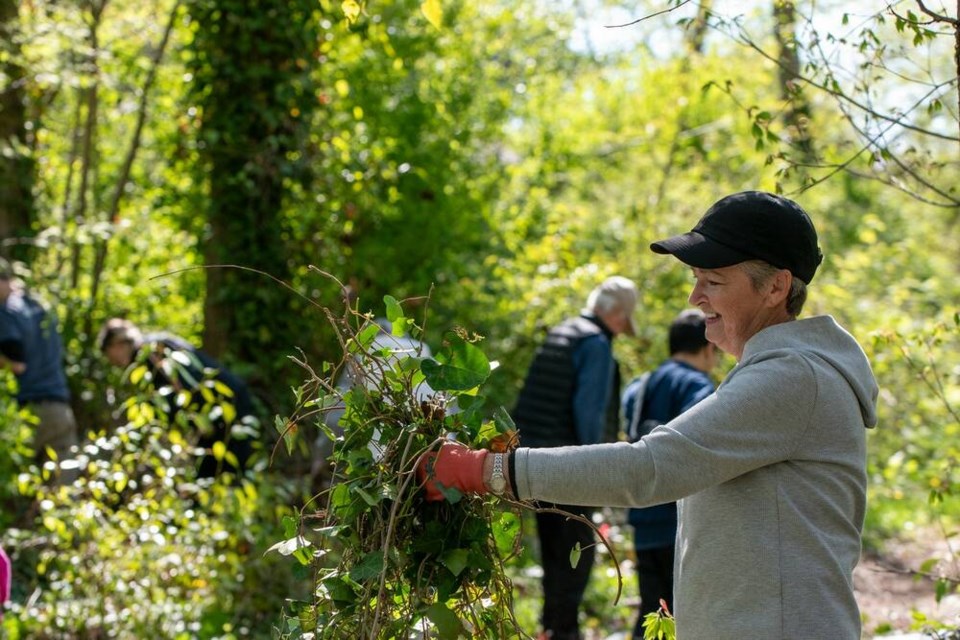The invasion of English ivy into local forests is a good example of environmental harm being caused by good intentions.
According to Gail Wallin, with the Invasive Species Council of B.C., the ivy was brought in from Europe to provide fast-growing ground cover.
But that it did too well and now the City of Delta holds half a dozen English ivy community weed-pulling events each year to get the stuff out of local parks where it’s creeping along the ground making dense mats and climbing and choking trees.
Delta recently held three weed-pull events but three more are planned for the fall.
Kim Houghton, environmental coordinator with the City of Delta, said that ivy is the main target for such events because it’s easy for everyone to remove.
“It’s still in a lot of our parks. We feel like we’re making a big dent at Ladner Harbour Park,” said Houghton.
Unfortunately, some nurseries are still selling English ivy and people are still dumping it in parks. Eventually, ivy can choke out a tree, although that takes a while, she added.
Another invasive issue for Delta continues to remain the European chafer beetle, which is devastating local lawns. The city has info on its website on that pest and Houghton notes that June and July are the best time to apply nematodes that will kill the beetle larvae that are eating the grass shoots.
As well, Daphne (Spurge-laurel) was once a popular choice for gardens. Its toxic sap can cause skin rashes, nausea, swelling of the tongue and even coma, said a release from the council marking May as Invasive Species Action Month.
Wallin urged people to spend some time taking stock of the plants in their gardens, ensuring they are making PlantWise choices. The invasive species council also has a Grow Me Instead guide.
And if you discover invasives on your property, “Never compost invasive plants. Composting facilities may not reach high enough temperatures to inactivate certain invasive plant material like seeds,” she said in a release.
Pet owners are also asked to pay attention during Invasive Species Action Month.
When people release goldfish, red-eared slider turtles, European wall lizards or European rabbits, they can cause huge problems for waterways and sensitive riparian areas. Such animals don’t belong in the wilds of B.C., says the council.
“In the wild, goldfish can grow to be the size of a football. They eat everything, leaving nothing for native fish species. They can survive in extreme temperatures and can spread disease. Releasing pets into the wild is illegal,” said the council.
This month, ISCBC said that people can join the I Spy Identify project on iNaturalist and be part of the community observing nature and protecting Canada’s outdoor spaces from invasive species.



